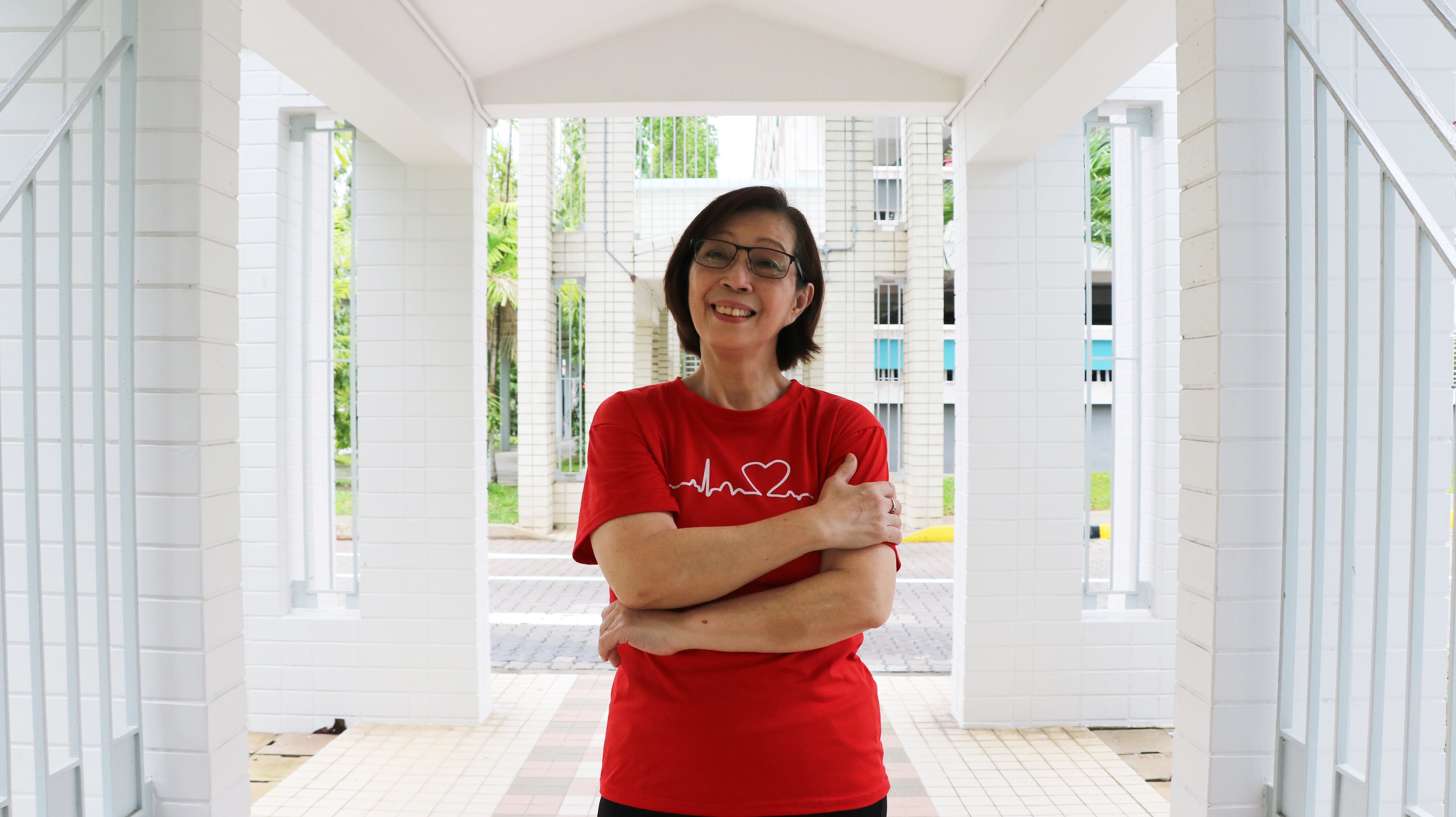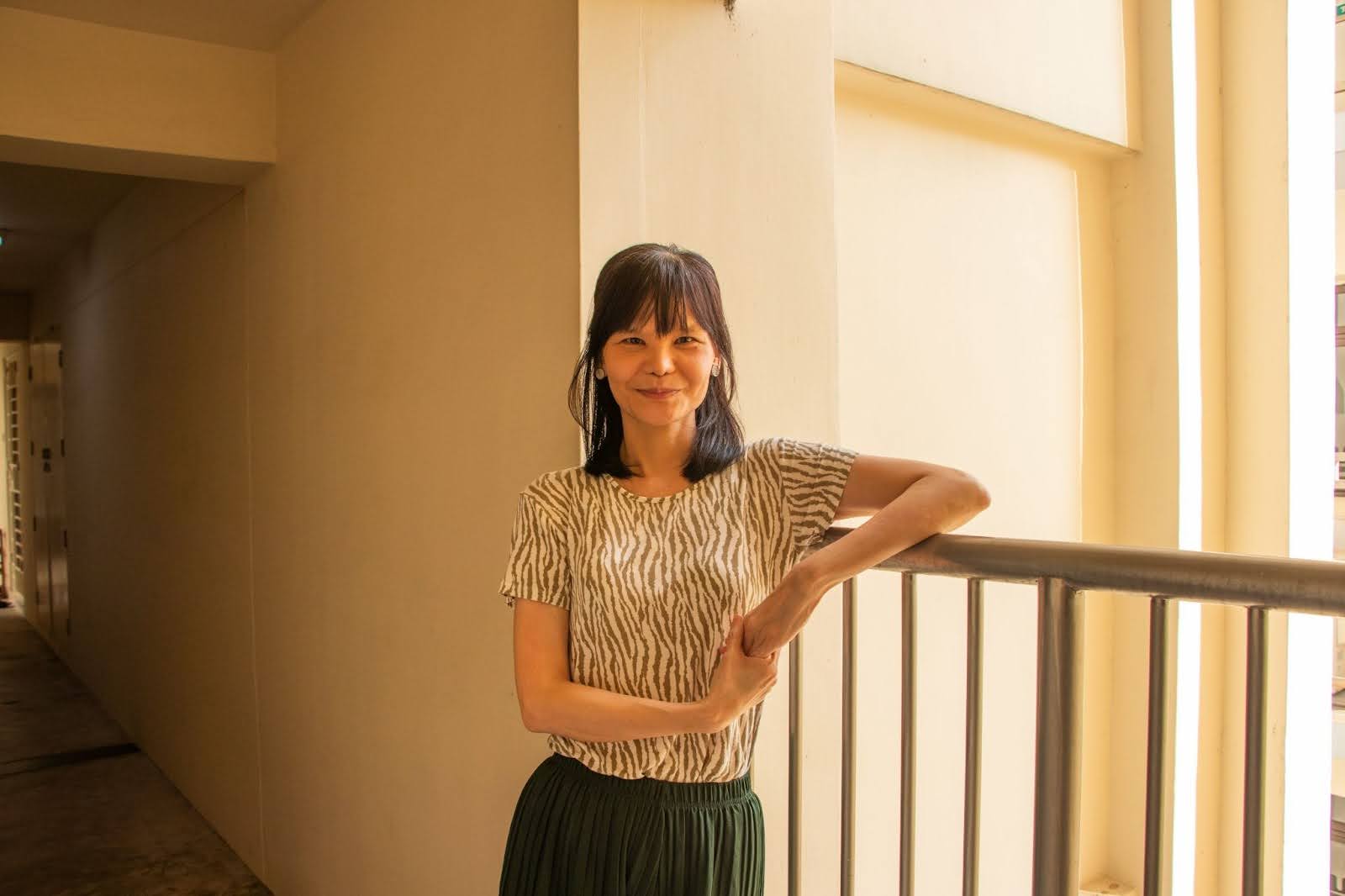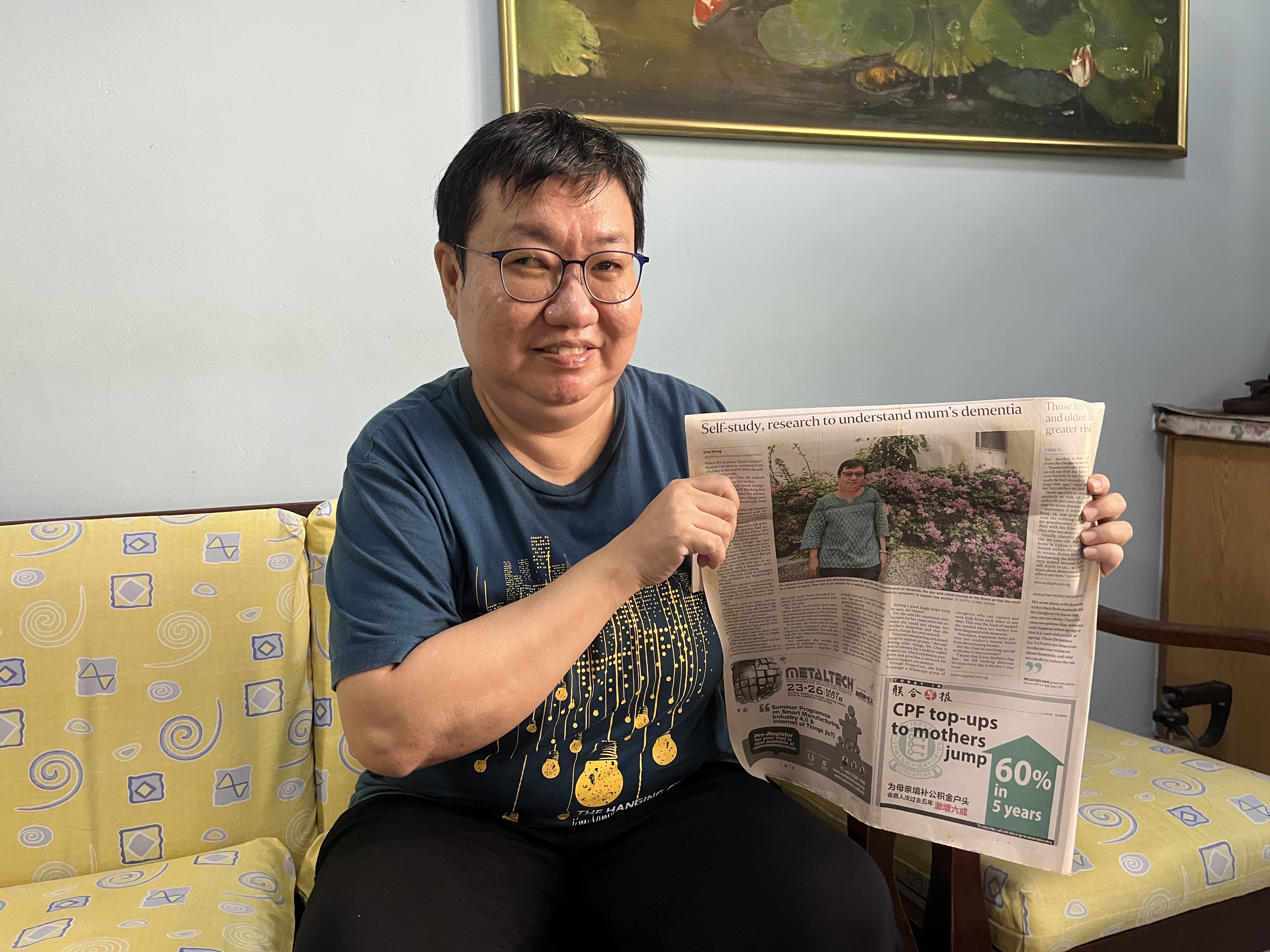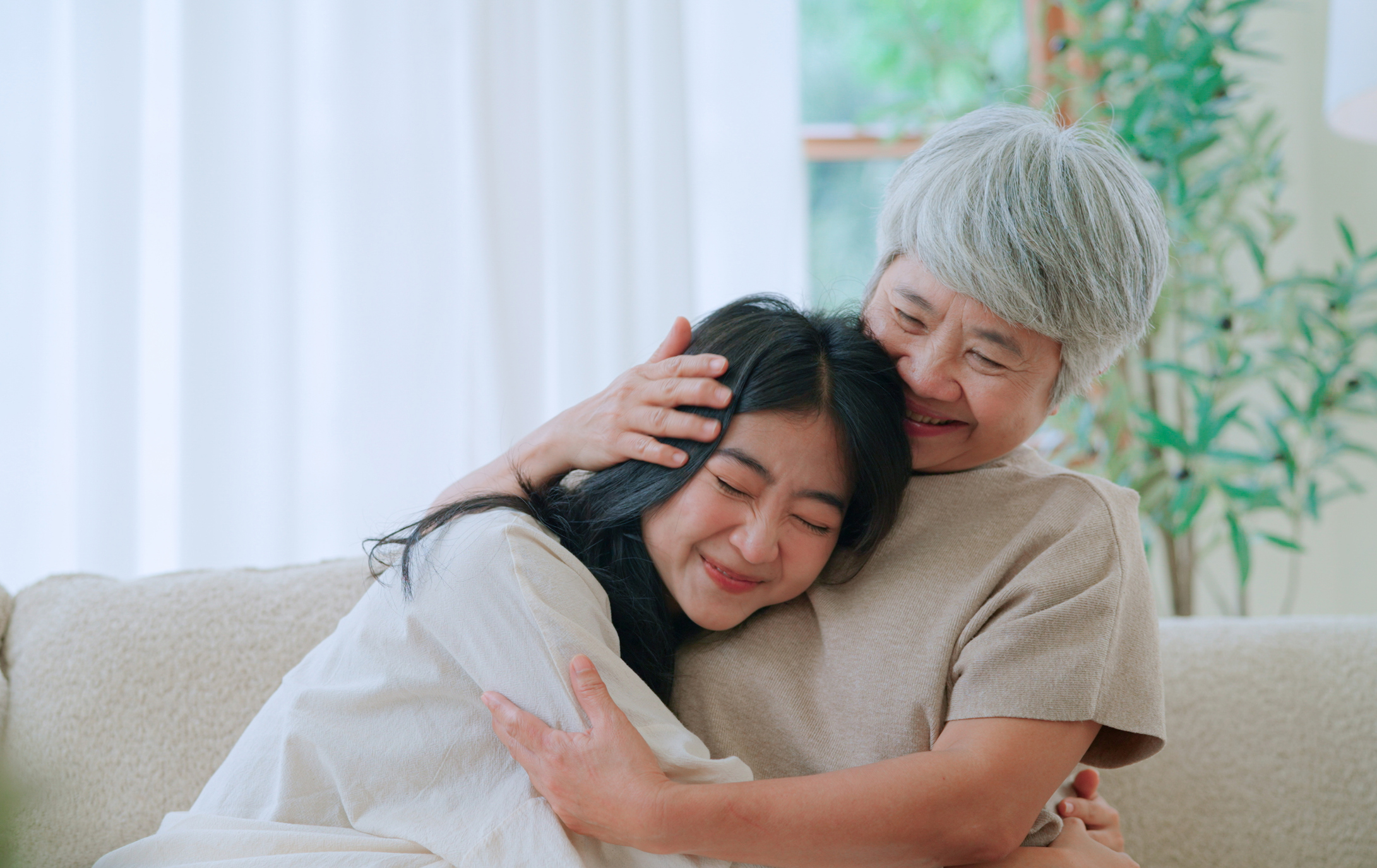For most of her life, 46-year-old Cityruth Cocoanna Christian has been a caregiver: first for her father, and now for her husband and father-in-law. Despite the challenges, she approaches her responsibilities with positivity and optimism. “I feel that laughter is good medicine, so I like to bring laughter and happiness to others,” she tells us.
An early start in caring
Her positive attitude and sunny disposition have kept her going from a young age. At eight, she lost her mother and became the primary caregiver to her father, who had a heart condition. When her father passed away when she was 16, she faced the prospect of living in an orphanage. “I didn’t want to go there,” she recalls. “So I said forget it, I’ll pave my own way and work.” It was during this time that she met her husband, Carl Chia.
“When we first met, I knew he had schizophrenia and other conditions like obsessive-compulsive disorder and intermittent explosive disorder, and I accepted him for who he was,” Cityruth says.

Unconditional love and unwavering strength
Cityruth herself is battling pre-existing health conditions: She was born with Type 1 diabetes, which requires her to go for dialysis three times a week, and half the muscles in her heart were damaged due to a past viral infection. Despite this she has cared for her husband almost from the day they met, and managed his complex needs alone until her health declined last year. Now, a TOUCH Community Services assists in showering her husband three days a week, and the Meals on Wheels programme delivers meals to their flat twice a day.
She also took care of her father-in-law after he had a fall two years ago. When it was revealed he had late-stage dementia, Cityruth decided to bring him to live with them. She cared for him and ensured his comfort with thoughtful modifications, such as having a gate installed outside his room to make him feel safe.
“He has late-stage dementia, so he has a lot of fears,” Cityruth explains. “He would say people are coming into my house, dogs can come in, cats can come in… He felt safer and happier after we installed the gate.”
However, the demands of caring for her husband and father-in-law, as well as her declining health, soon led Cityruth to relinquish the responsibility of caring for her father-in-law. “My health deteriorated, and my nurses told me I had to let go, if not I would die first,” she recalls. “So now the family caregiver role is handed over to my husband’s elder brother.”
Why go for Advance Care Planning (ACP)
As Cityruth is her husband’s caregiver, she makes the decisions for both of them. However, her own health concerns prompted her to think about the future. What would happen if she became incapacitated? Who would make the decisions then? This led her to consider Advance Care Planning (ACP), the process of planning for future health and personal care preferences should one become incapacitated and unable to make such decisions.
With ACP, Cityruth’s husband wouldn’t have to worry about making medical decisions for her if she’s unable to do so for herself. “I didn’t want my husband to worry in case I went for any surgery this year. When my doctor informed me about my health condition, I prepared for the worst. I was already thinking about my final rites and plans for my funeral, so I thought, what else is there to be done? That’s when I thought of ACP, and that it would be good to have since it would be in the systems of all the hospitals in Singapore.”
Experiencing ACP
Cityruth was first introduced to ACP when she and her husband visited her father-in-law at Ng Teng Fong General Hospital. She was approached by the nurses who asked whether she would like to do ACP for her father-in-law.
When the nurse explained the ACP process to us and we translated for my father-in-law, he was able to make his choices very quickly; we were done in about half an hour,” she recalls.
Her own ACP at the National Heart Centre was transformative. “For me, it was a deep, almost three-hour discussion about my goals and idea of quality care,” she explains. This reflection helped Cityruth decide her healthcare preferences, easing her fears and providing peace of mind.
Despite the difference in duration for Cityruth and her father-in-law, the ACP process is the same for everyone. Individuals with more health conditions like Cityruth may need to answer more questions to ensure their healthcare preferences are thoroughly considered, leading to a longer process. Conversely, those with little or no healthcare considerations may be asked fewer questions, resulting in a shorter process.
”I agreed to most things except one — don’t cut off my limbs just to save me. I used to be a dancer, losing my leg would make me seriously depressed,” she says.
For Cityruth, the hardest part about doing her ACP was convincing her loved ones why it was necessary. “I didn’t want to burden anyone, especially my husband with my care, with the decisions needed for my care, and eventual passing.”
She herself is philosophical about death. “We come to this life, enjoy life to the fullest and after that, if it’s time to go, we go,” she asserts.
While her husband isn’t ready to do his ACP, she remains hopeful. “He’s not yet prepared to face death or discuss any topic related to it, so I have to slowly ease him into it.”
Cityruth advises caregivers and those who are considering doing ACP to prepare early. “It’s good to do ACP so that you, your loved ones and the medical team know what you want in an emergency,” she says.

The importance of helping others and self-care
Having prepared for any eventuality, Cityruth continues to live with an eye towards the future. After attending dementia training classes at Caregivers Alliance Limited (CAL) to better understand her father-in-law’s condition, she became a trainer herself, educating others about dementia. She recently stepped back from training to work with Changi General Hospital on the Esther programme, which aims to promote a patient care-centred approach.
Although she’s busy with caregiving and other commitments, Cityruth recognises the importance of self-care and emphasises that all caregivers must prioritise it. To Cityruth, self-care means enjoying music and picking up a new skill like DJing.
If you or your family would like more information about ACP and how to go about it, visit this link: https://www.aic.sg/care-services/advance-care-planning/








